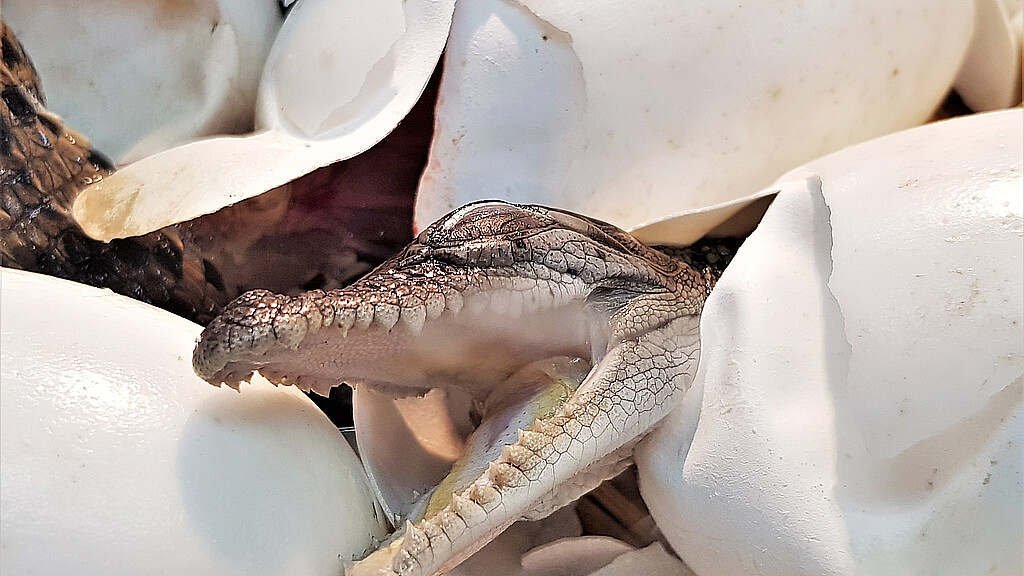Culture
First ever 'virgin birth' of female crocodile recorded in Costa Rica
The fetus the crocodile produced was 99.9% identical to herself, confirming that there was no father

June 8, 2023 8:38am
Updated: June 8, 2023 8:38am
A zoo in Costa Rica recorded the first ever “virgin birth” by a crocodile who has lived in isolation for the past 16 years, according to a study published on Wednesday.
In 2018, an 18-year-old female American crocodile laid 14 eggs during her captivity—something that is not uncommon among reptiles that are held in isolation. However, what was strange about the phenomenon was the fact that one egg contained a fully formed crocodile.
Scientists, baffled at the occurrence, studied the stillborn baby crocodile and tested its genetic makeup. They found that its DNA sequence suggested that it was formed through facultative parthenogenesis (FP), according to the study published in the journal Biology Letters.
FP, when a female’s egg can develop without being fertilized by a male’s sperm cell, is referred to by scientists as “virgin birth.” The fetus the crocodile produced was 99.9% identical to herself, confirming that there was no father.
While it has been found in other species, such as snakes, lizards, birds, and fish, this is the first-known instance found in a crocodile.
Scientists behind the study said that the “virgin birth” could lead them to discover new things about the American crocodile, which is at risk of extinction in the wild.
"This discovery offers tantalizing insights into the possible reproductive capabilities of the extinct archosaurian relatives of crocodilians and birds, notably members of Pterosauria and Dinosauria," the study said.
Scientists claim that the ability to give birth without a male partner might be a trait inherited from the crocodile’s ancestors, which walked the earth around 250 million years ago in the Triassic Period.
One theory suggests that animals are able to self-reproduce when their numbers are dwindling and are on the verge of extinction.






